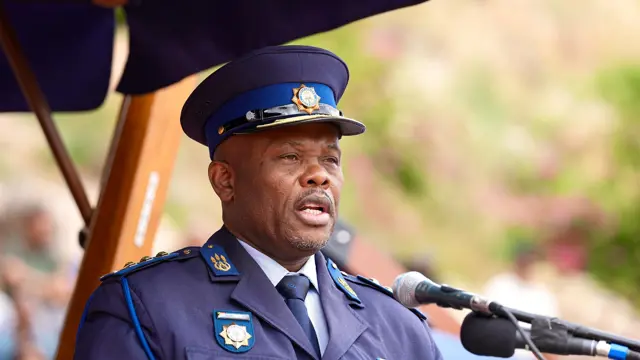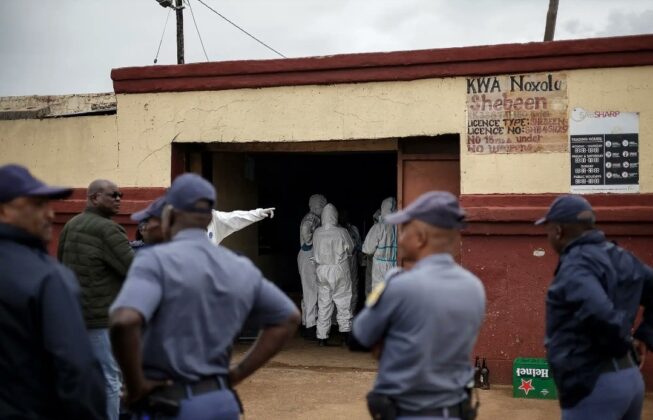
South Africa’s policing leadership is under renewed scrutiny as Deputy National Commissioner Shadrack Sibiya is placed on leave, exposing deeper cracks in the SAPS crisis. Image: SA Police Service shared via Facebook.
(The Post News)- South Africa’s Police Service faces renewed questions about leadership and oversight after Deputy National Commissioner for Crime Detection, Lieutenant General Shadrack Sibiya, was placed on leave.
This comes after KwaZulu-Natal Police Commissioner Nhlanhla Mkhwanazi accused Sibiya, Police Minister Senzo Mchunu, and other senior officials of political interference and corruption.
The instruction reportedly came from National Police Commissioner Fannie Masemola, who directed Deputy Commissioner Tebello Mosikili to request that Sibiya stay home on leave while claims by KZN Police Commissioner Nhlanhla Mkhwanazi are investigated.
EWN News reports that Sibiya has accepted the decision to be placed on leave while the allegations made by Mkhwanazi are investigated, saying he is willing to comply for the good of the South African Police Service.
EWN also quoted Sibiya as saying, “As for now, I’ve been asked to say, ‘we are not suspending you but because there are investigations ongoing, we suggest that you stay at home.’ And this is what I’ve accepted as well, and I am happy to do so.”
Sibiya said he has always had a good working relationship with General Mkhwanazi and respects him for being a straightforward person. However, he described the public allegations as an embarrassment for the South African Police Service, saying that instead of turning on each other, they should be collaborating to fight crime. Sibiya also called on Mkhwanazi to apologise to the public.
Ian Cameron, DA Spokesperson on Police, said it is an uncommon practice in policing to offer leave in cases where disciplinary steps might be warranted. This unusual approach reflects a deeper leadership crisis unfolding at the top of SAPS. The distinction between being placed on leave and facing suspension isn’t minor; it strikes at the core of accountability.
In his media statement, Cameron pointed out that in policing, a leave of absence is meant for personal situations such as illness or family emergencies and is typically requested by the individual. It has no link to disciplinary action and does not feature anywhere in the SAPS Discipline Regulations.
“Requesting that he take a leave of absence allowed SAPS to bypass its established disciplinary procedures, weakening both the investigation’s integrity and the institution’s trustworthiness,” stated Cameron.



